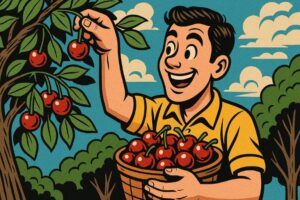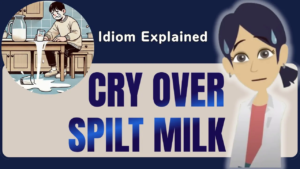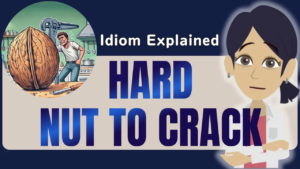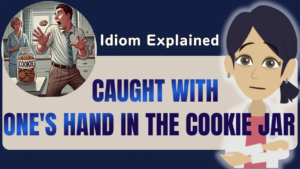Ever found yourself in a hilarious misunderstanding when someone mentioned “cherry picking” and you were looking for actual fruit?
To selectively choose only the most beneficial or favorable items, facts, or options from a larger set while ignoring the rest.
English idioms add color to our conversations, and “cherry pick” perfectly illustrates this.

Just as someone might select only the ripest cherries from a tree, this phrase describes the act of choosing only the best options while leaving the rest behind.
In this guide, we’ll explore how this selective practice appears in professional settings, sports, and everyday conversations.
You’ll learn its true meaning, discover related expressions, and test your knowledge with a fun quiz to boost your English fluency.
Introduction
Idioms in English often bring color and depth to a language that can otherwise feel very literal. They reflect cultural nuances and everyday habits, helping us say more with fewer words.
“Cherry pick” is a prime example of this.



It paints a picture of someone choosing only the best options, much like picking the ripest cherries from a tree while leaving the rest behind.
In this blog, we’ll clarify what “cherry pick” truly means and examine why it’s so commonly heard in professional settings, sports, politics, and casual conversations.
You’ll also discover alternative expressions that carry a similar meaning, as well as idioms that stand as the opposite of this selective practice.
Cherry Pick Explained
At its core, “cherry pick” means to select only the most desirable or beneficial items from a larger pool.
This can be seen in everyday situations, like taking only the fluffiest towels from a stack, or choosing the best snacks from a buffet.
The idea stems from the way people literally pick cherries in an orchard. Only the ripest or most appealing cherries go into the basket, while the imperfect ones remain on the tree or are discarded.
When you apply this concept to non-fruit scenarios, you’re talking about gathering only the best data points, the most skilled people for a team, or the most convenient arguments for a debate.
In short, “cherry picking” focuses on maximizing gains or appearances by favoring the top choices and disregarding everything else.
Why Misunderstandings Happen
Misunderstandings often happen when someone interprets “cherry pick” in an overly literal sense.
They might picture a person showing up with a basket to collect actual cherries, wondering how that ties into a conversation about jobs or data.



Such confusion can be amusing in casual chats.
However, in professional or academic contexts, misconstruing “cherry pick” can lead to serious communication gaps, because people may believe you’re referring to a harmless activity rather than the selective tactic it truly is.
Memorable Anecdotes
- One individual once arrived at a company workshop equipped with a small basket, thinking they’d be picking real cherries during a team-building exercise.
The entire office had a good laugh when they realized it was just an idiom about selecting favorable tasks. - A friend who misunderstood “cherry picking” once joined a cooking class believing the session would revolve around making pies.
He was quite surprised when the instructor explained that they’d be “cherry picking” only the best recipes to focus on.
These stories illustrate why idioms can sometimes be tricky. Yet they also remind us of how entertaining language mishaps can be when everyone understands the context in the end.
Cherry Pick in Contexts
Professional Settings
- Task Distribution: Suppose a manager only hands out the easiest or most rewarding tasks to a select few employees.
This manager is “cherry picking” tasks instead of distributing them fairly. - Data Presentation: In a meeting, someone might mention only the successful parts of a project, ignoring the setbacks.
This is also a form of “cherry picking,” as it highlights only the best outcomes.
Sports
- Selecting Players: A coach might build a team by recruiting only the strongest athletes, overlooking promising players who need more time to develop. While this can produce a winning record, it may also mean losing out on long-term potential.
- Highlighting Stats: Sports commentators sometimes emphasize a player’s best statistics and gloss over their weaker performances. If these commentators focus solely on glowing details, they’re “cherry picking” stats.
Casual Life
- Shopping: If you only buy the items on sale or pick out fruits with the most vibrant color, you’re “cherry picking” the best deals or the prettiest produce. Although strategic, it can come across as a singular focus on a narrow set of benefits.
- Social Media: People often post just the highlight reels of their lives, choosing only flattering photos or achievements. This can be seen as “cherry picking” personal moments to showcase.
Historical Perspective
Many believe the phrase “cherry pick” emerged in the 19th century in the United States, where cherries were a notable crop.
Because cherries can bruise easily, people picking them tend to choose carefully, taking only those that are ripe and unblemished.
Over time, this literal habit transitioned into a metaphor describing the act of selecting the best options.
By the early 20th century, “cherry pick” was recognized not just for fruits but also for choices in business, politics, and everyday life.
Politicians often face accusations of “cherry picking” data or facts that support their arguments.
They might highlight only favorable economic indicators and suppress any that might suggest a less positive outcome.
Similar & Opposite
Similar Expressions
- Handpick: This means selecting individuals or items with great care. For instance, “The director decided to handpick the team members based on specific skill sets.”
- Choose Selectively: It denotes picking only the most suitable options. For example, “If you’re redecorating, you’ll want to choose selectively so every piece matches perfectly.”
- Pick of the Litter: Originally referring to choosing the best puppy from a litter, it now means choosing the finest option available. A person might say, “I got the pick of the litter when I bought my camera at the electronics sale.”
Opposite Expressions
- Take What You Can Get: This suggests accepting whatever is available, regardless of quality. For instance, “All the best hotel rooms were taken, so we had to take what we could get and stay in a tiny one.”
- Settle for Less: This means agreeing to something that isn’t the ideal or top choice. A traveler, for example, might say, “I couldn’t afford the flight I really wanted, so I had to settle for less and booked a midnight departure.”
Understanding these alternatives can help you enrich your conversations. They also highlight the contrast between being meticulous and being forced to accept lesser options.
Real Examples & Stories
Two sentences per example help keep things clear and concise. Check out these scenarios and see if they ring any bells in your own life:
- Office Promotions
- “The boss always cherry picks the top performers for new opportunities.”
- Some colleagues wonder if this approach overlooks employees who might shine if given a chance.
- Buffet Line
- “She only took the desserts, leaving behind all the vegetables and main courses.”
- People joked that she was cherry picking the sweetest options and ignoring a balanced meal.
- Recruitment
- A recruiter might scan resumes and cherry pick candidates with the flashiest accomplishments, skipping those who need some skill development but show great potential.
- This strategy can quickly assemble a high-performing team, though it might overlook hidden talents.
- Group Projects
- Imagine a class project where one student chooses only the easiest parts of the assignment, leaving the tough bits for everyone else.
- That student is definitely cherry picking tasks instead of distributing the workload fairly.
- Travel Photos
- Someone might share only the most stunning pictures of their trip, avoiding shots with cloudy skies or missed trains.
- They end up cherry picking the moments that paint a flawless vacation, but not the mishaps that happened in between.
Each instance shows how “cherry picking” plays out in ordinary life. Recognizing these patterns can help you communicate more effectively and call out any selective presentation you come across.
Pop Quiz: Check Your Idiom Skills
Cherry Pick

Conclusion
Idioms add color to English, and “cherry pick” is a great example—it means to selectively choose only the most convenient options.



It can describe someone ignoring the full picture or even your own selective habits, so use it with care!
Related idioms like “handpick,” “pick of the litter,” or “take what you can get” add extra flavor to your English.
Keep learning—idioms make you sound more natural and confident in any conversation. Comment your favorite idiom or bookmark for later!









Comment